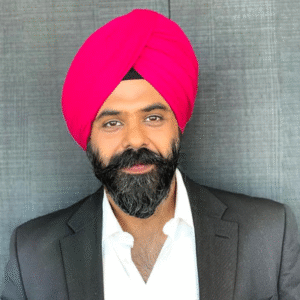Harveer earns his place in the 2025 DataIQ 100 North America as a data leader translating enterprise ambition into tangible outcomes, from cloud migration to monetization. As Chief Data Officer, Consumer & Small Business Banking at Truist, he is reshaping how data powers both operational efficiency and client engagement across digital and retail banking. His work stands out not only for its technical depth, including enterprise cloud architecture and AI enablement, but also for a clear commercial focus: turning data into a strategic growth lever. With experience spanning fintech, consulting, and global financial services, Harveer is helping redefine the role of the CDO as a catalyst for value creation. Truist joined the DataIQ network in 2024. Since then, Harveer has actively participated in DataIQ events both as moderator and contributor to discussions that are helping to shape the future of data and AI leadership.
I joined Truist Bank as Chief Data Officer, Consumer & Small Business Banking in May 2024, with a focus on strengthening data governance, accelerating analytics capability, and positioning the organization for long-term success through advanced data strategy. My remit spans retail, digital, and small business banking ensuring that data is leveraged effectively to drive growth, customer experience, and operational efficiency.
My background includes leadership roles across financial services, fintech, and consulting. Before joining Truist, I served as Chief Data Architect and Global Head of Data at Western Union, where I led digital asset platform development and enterprise data transformation. Earlier in my career, I was a Partner at Deloitte, advising top banks and payments firms on large-scale data strategy, modernization, AI, and compliance.
I am recognized in the industry for my ability to align business strategy with data-driven innovation, ensuring that technology investments lead to measurable business outcomes. That alignment starts with strategic engagement: I work closely with senior stakeholders to frame initiatives around business priorities, whether that is improved client engagement, risk mitigation, or efficiency gains. Demonstrating tangible impact builds the sponsorship needed to scale.
I also believe in co-creating solutions, not imposing them. By embedding data teams within business units and focusing on intuitive, actionable products, we make data part of everyday decision-making. A clear governance framework, combined with ROI-driven roadmaps, helps keep the function aligned with corporate priorities.
Culture is just as important as capability. I prioritize building data literacy and cross-functional collaboration to ensure that data is accessible and useful across the organization. When the data function is viewed as a strategic partner, not a support function, it earns the investment and influence needed to drive real change.
As the role of the data leader continues to evolve, I see the emphasis shifting from oversight to enablement. In the next 12–24 months, data leaders will be expected to embed AI into decision-making and product innovation, while ensuring ethical governance, scalability, and explainability. At the same time, opportunities around data monetization and customer insights are accelerating. The data leaders who succeed will be those with a clear vision for how data fuels growth and who can bridge the gap between technical capability and business value, transforming data leaders into business strategists rather than just technology enablers.


